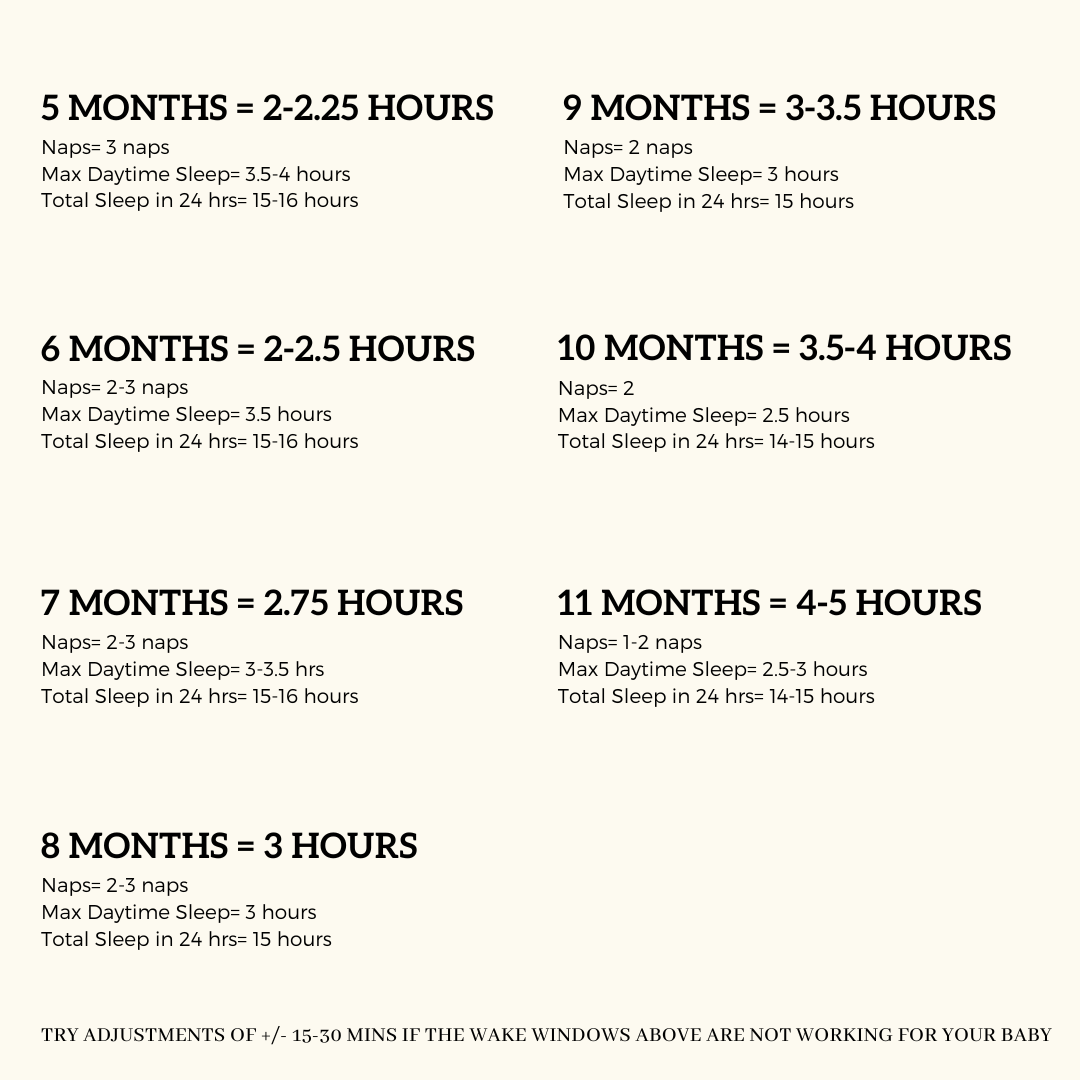Top 4 Reasons Babies Wake Up Too Early—and How to Help Them Sleep Longer
Early morning wakings can be one of the most frustrating challenges for parents. You tuck your little one in for what feels like the “perfect” bedtime, only to have them greet the day far too early. While every baby is unique, research and experience show that there are a few common causes behind early morning wakings. Understanding the “why” is the first step toward gently helping your baby sleep longer.
1. Overtiredness
Overtired babies often wake up earlier, not later. When a baby stays awake too long before bedtime—or goes to bed too late—stress hormones like cortisol increase, making it harder for them to enter deep, restorative sleep. This can lead to lighter sleep cycles and early morning wake-ups. Observing your baby’s natural wake windows and adjusting bedtime to match can make a big difference in morning sleep length. See below for your baby’s ideal bedtime:
3 months old: 1.5 hours after last nap ends
4 months old: 2 hours after last nap ends
5 months old: 2.25 hours after last nap ends
6 months old: 2.5 hours after last nap ends
7 months old: 2.75 hours after last nap ends
8 months old: 3 hours after last nap ends
9 months old: 3.5 hours after last nap ends ends
10-11 months old: 3.75-4 hours after last nap ends
12-18 months old ( 2-nap/day schedule): 6 hours after last nap ends
12-24 months old (1-nap a day schedule): 7 hours after last nap ends
2. Inconsistent or Shortened Wake Windows
Wake windows—the periods your baby is awake between naps—play a crucial role in healthy sleep cycles. If wake windows are too short or too long, or vary dramatically from day to day, it can disrupt nighttime sleep. For example, a 6-month-old with a wake window of 2 hours might become overtired if kept awake for 3, or under-tired if naps are too close together, leading to early waking. Matching wake windows to your baby’s developmental needs often helps extend morning sleep.
3. Understimulation During the Day
Babies need a balance of sleep and stimulating activity. Insufficient daytime interaction—like limited tummy time, play, or exposure to natural light—can make it harder for them to distinguish day from night. This may cause early waking. Increasing age-appropriate activity during the day can encourage longer stretches of morning sleep.
4. Environmental Factors
Light, noise, and temperature can significantly influence early waking. Morning sunlight streaming into the nursery or early household activity can cue your baby that it’s “time to wake up.” Similarly, a room that’s too hot, cold, or noisy can interrupt sleep cycles. Blackout curtains, white noise machines, and consistent nighttime conditions can make a noticeable difference.
Putting It All Together
Early morning wakings are rarely caused by a single factor. Often, they are a mix of developmental, environmental, and sleep-schedule issues. By observing your baby’s wake windows, bedtime routine, daytime activity, and sleep environment, you can start to identify patterns and make small adjustments.
Sleep is a skill—both for babies and parents. With consistent, gentle strategies, early mornings can shift later, giving everyone a more restful start to the day.
I have included age-based wake windows below:
For Month 5, the first wake window of the day should be about 1.5 hours with the longest wake window before bed being closer to 2-2.25 hours. For Months 6-11, typically the first wake window of the day should be 2-2.5 hours and the maximum wake before bed is listed above by month.
For a child on a 2-nap schedule, the first wake window is typically 2-3 hours. The last wake window of the day is about 4-5 hours. For a 1-Nap schedule, the first wake window is typically 6 hours and the last wake window is 4-5 hours.




